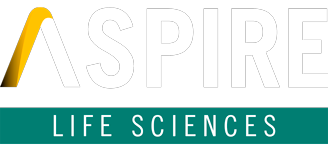I must say, I’m quite excited about the role of Artificial Intelligence & Machine Learning in Drug Discovery. Throughout 2023, I had the opportunity to work with companies ranging from early-stage startups to well-established ones, all focused on AI/ML. It’s becoming clear that this subsect is gradually becoming the norm. What impresses us today will soon be standard. For the moment, it’s new and thrilling. Based on some engaging discussions and thorough market analysis, I’d like to share my perspective on this rapidly evolving domain.
The Impact of AI in Life Sciences
Artificial Intelligence has had a significant impact on life sciences, especially in healthcare. AI applications are expected to save up to $150 billion annually for the U.S. healthcare economy by 2026. This represents a substantial shift in how we approach healthcare delivery and management.
One of AI’s most notable impacts is in drug discovery. Recent reports suggest that AI could potentially reduce drug discovery costs by 40%, addressing a major challenge in pharmaceutical research.
The reason AI is so effective is its capacity to handle large datasets. A single human genome sequence can generate up to 200 gigabytes of data. AI’s ability to manage and interpret this vast amount of information is not only making healthcare and drug discovery more efficient but also opening doors for personalised medicine and genomics to advance.
The Power of Data Analytics
Data analytics is a crucial component of the ongoing changes in life sciences. It serves as a vital tool for making sense of the massive amount of data generated in the field. In 2020, the global bioinformatics market, which is essential for data analytics in life sciences, had an approximate value of $8.9 billion. However, it’s expected to significantly increase to about $24.5 billion by 2027.
The substantial growth of the bioinformatics market highlights the increasing reliance on data analytics to derive meaningful insights from the complex world of biological data. This underscores the critical role that data analytics now plays in life sciences.
The applications of data analytics are widespread and profound. From genomic sequencing, where it aids in identifying genetic markers for diseases, to clinical trials, where it predicts outcomes and enhances efficiency, the reach of data analytics knows no bounds. These applications are growing increasingly sophisticated, with the market for AI in diagnostics, for instance, poised to hit $1.5 billion by 2024.
Recruitment Trends in the Converging World
As technology and life sciences come together, there’s a growing demand for professionals who can handle both fields effectively. In the biotech sector alone, employment has been steadily increasing at a rate of 6.4% annually since 2017. This emphasizes the need for individuals who combine biological knowledge with technological skills.
But the demand for professionals isn’t limited to biotechnology alone. The need for data scientists and machine learning experts, particularly in life sciences, has seen a significant surge, with a growth of over 35% in the past two years. The most sought-after candidates in this changing landscape are those who can blend their understanding of biology with technical expertise. This trend is giving rise to a new generation of interdisciplinary professionals, reshaping how recruitment operates in these sectors.
Prospects
The future of life sciences and technology is closely connected to the development of personalised medicine. In 2019, the personalised medicine market was valued at $57 billion, and it’s expected to grow to over $149 billion by 2024.
AI-driven data analysis plays a central role in this growth. It enables the customisation of medical treatments based on individual genetic profiles, potentially leading to improved outcomes and a more tailored approach to medical care.
Innovations in digital therapeutics and AI-assisted surgery highlight significant changes in progress. These developments aren’t minor, they are expanding the horizons of medical research and practice. We are observing a shift from traditional medical approaches to more data-driven, precise, and effective methods.
A Leap Forward
The convergence of life sciences and technology represents a leap forward that transcends the boundaries of imagination. As a recruitment company deeply involved in both life sciences and technology, we find promise in this integration. The future looks optimistic for those involved in this interdisciplinary field, and we’re dedicated to supporting the talent behind these advancements.
With ongoing innovation and the growing use of AI and data analytics in life sciences, we foresee a future where technology and biology work together seamlessly. This convergence may lead to important discoveries and an improved quality of life. The potential is vast, and the journey is both promising and meaningful.

